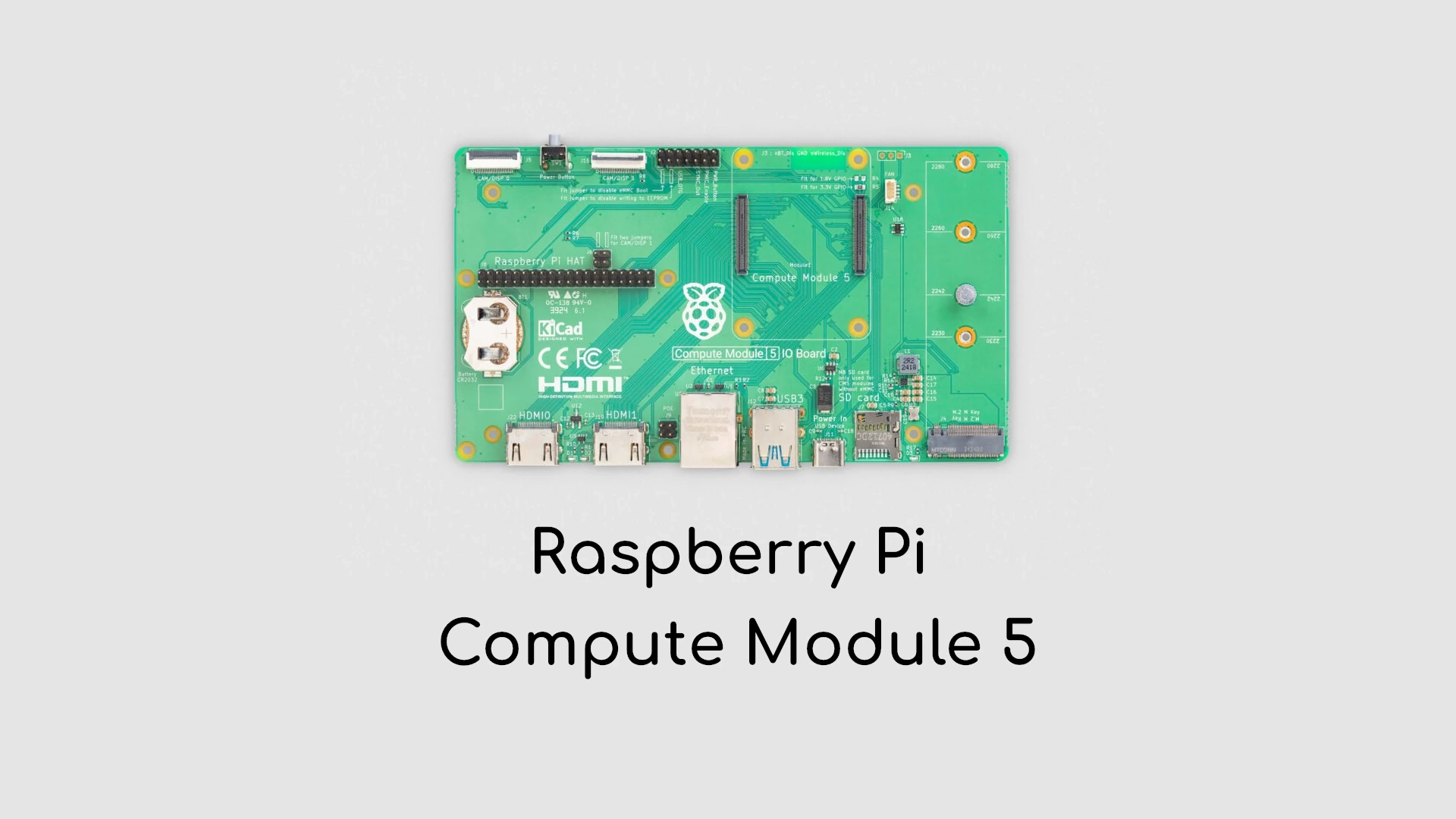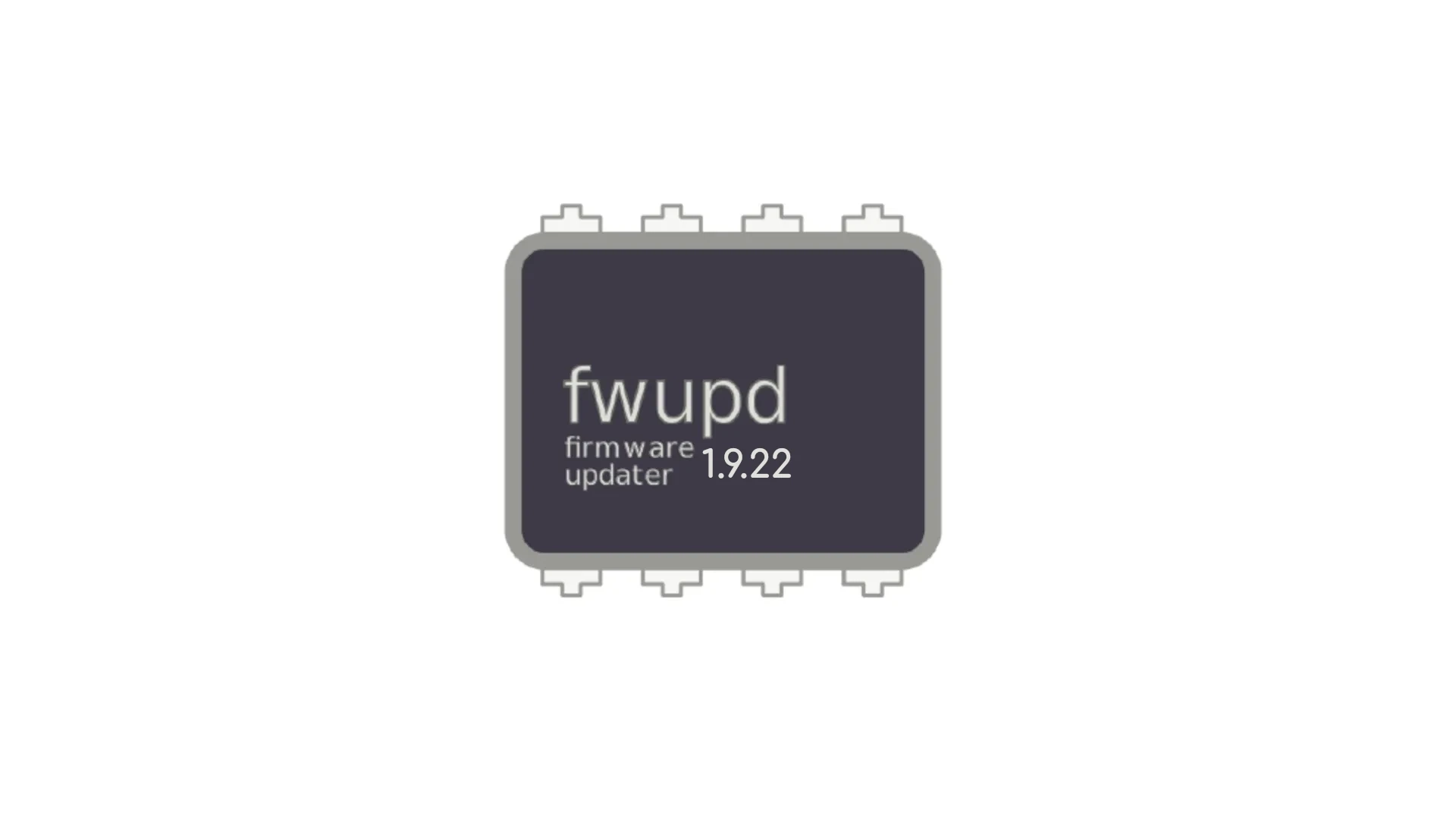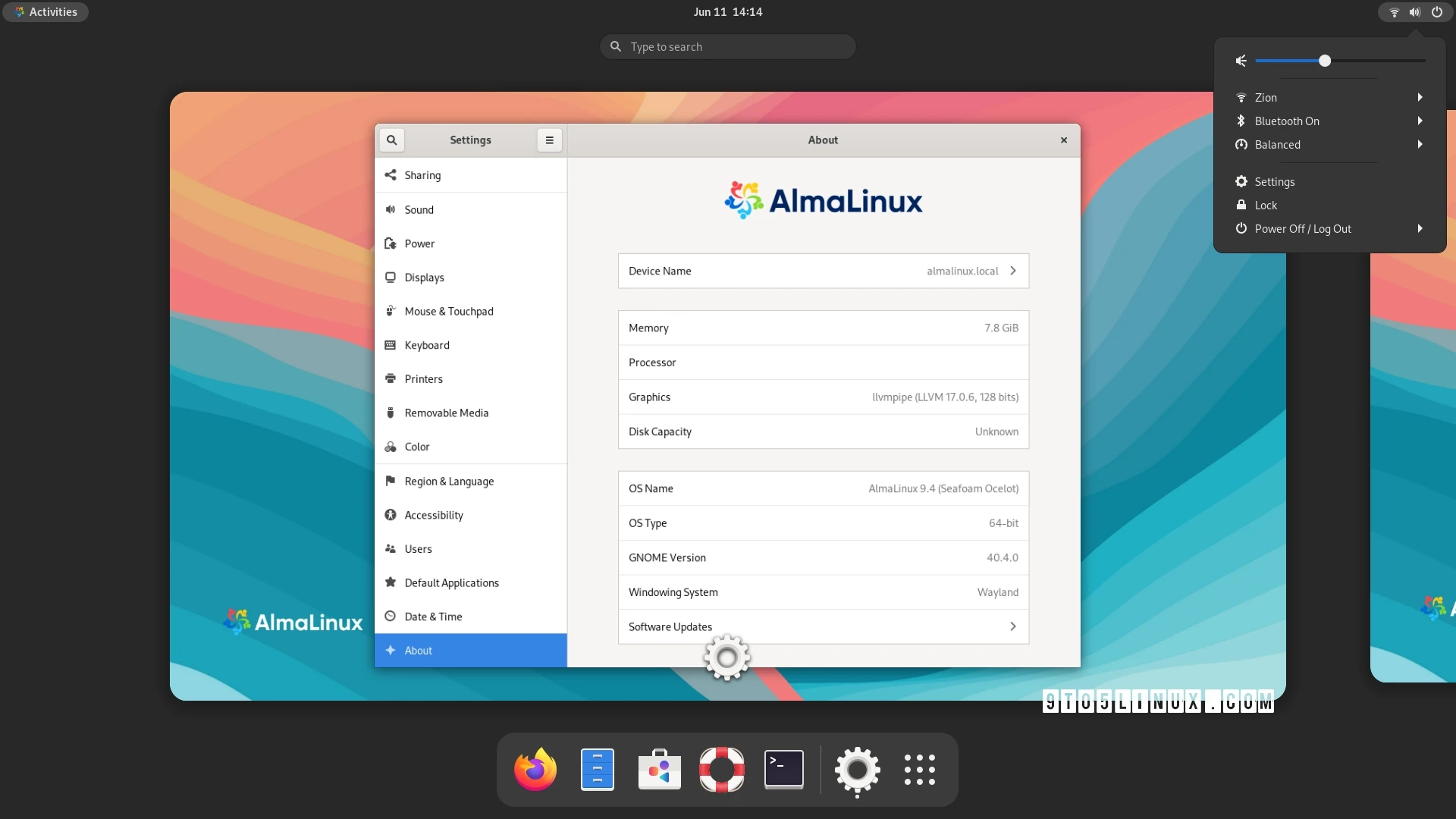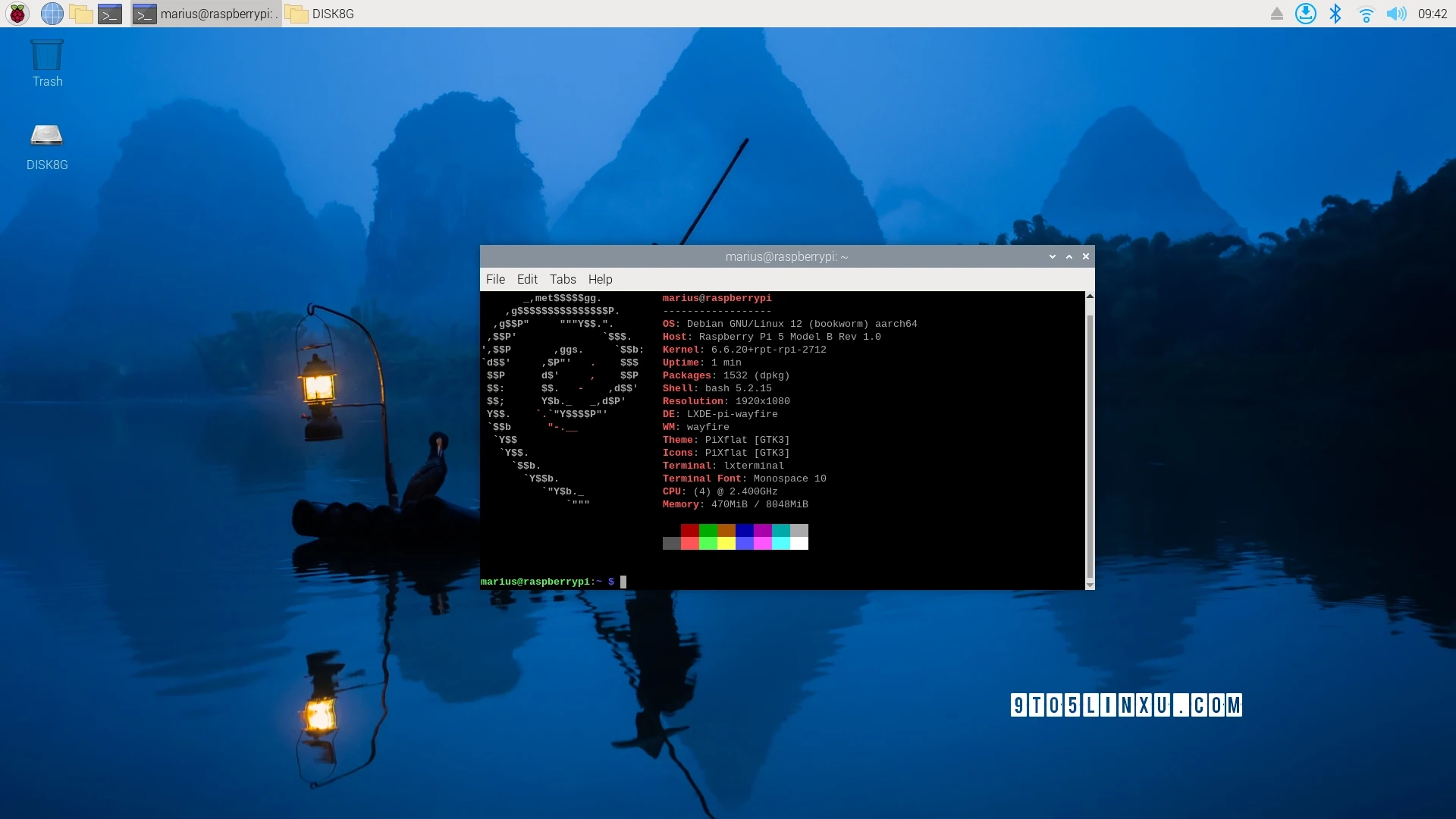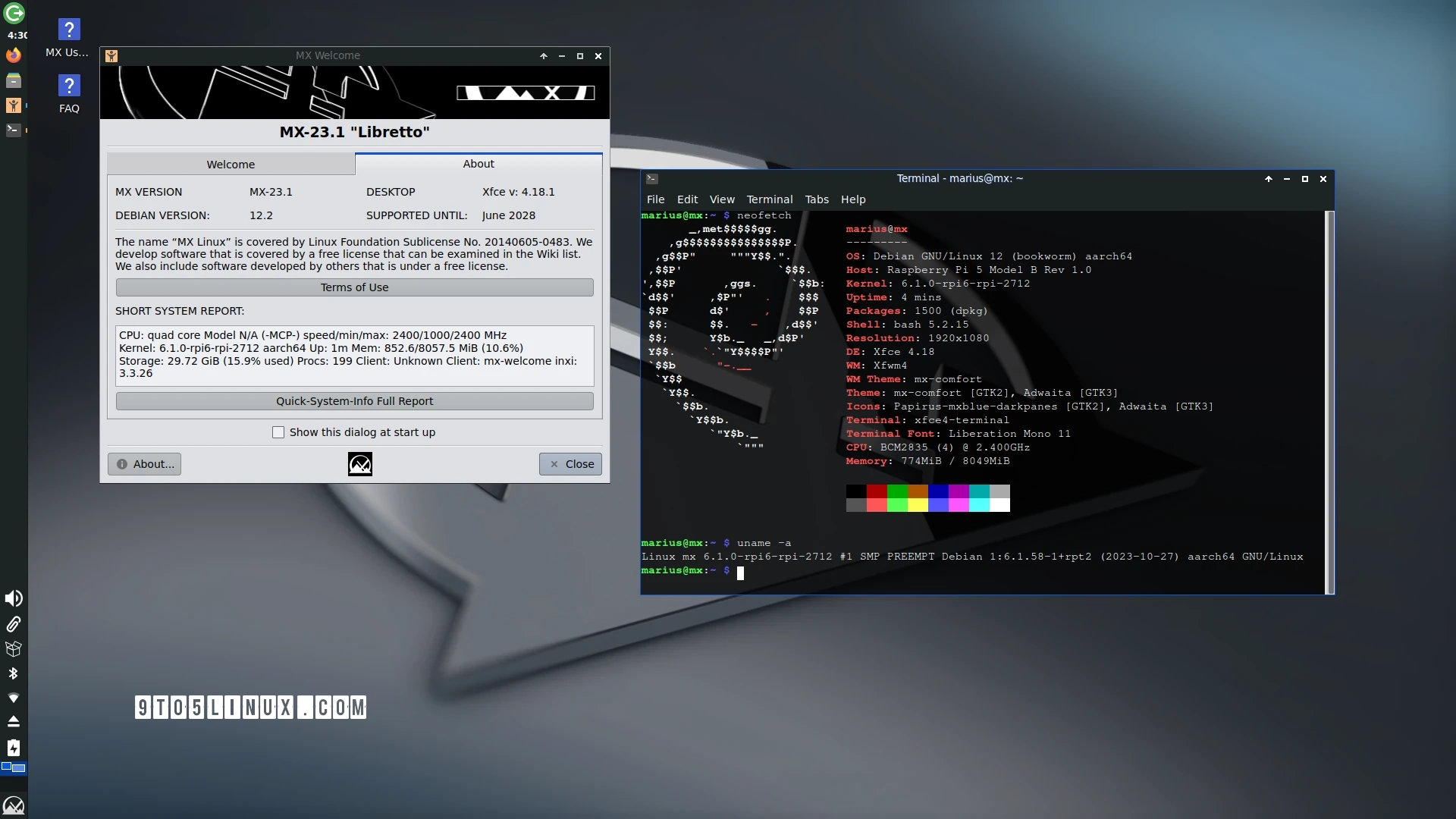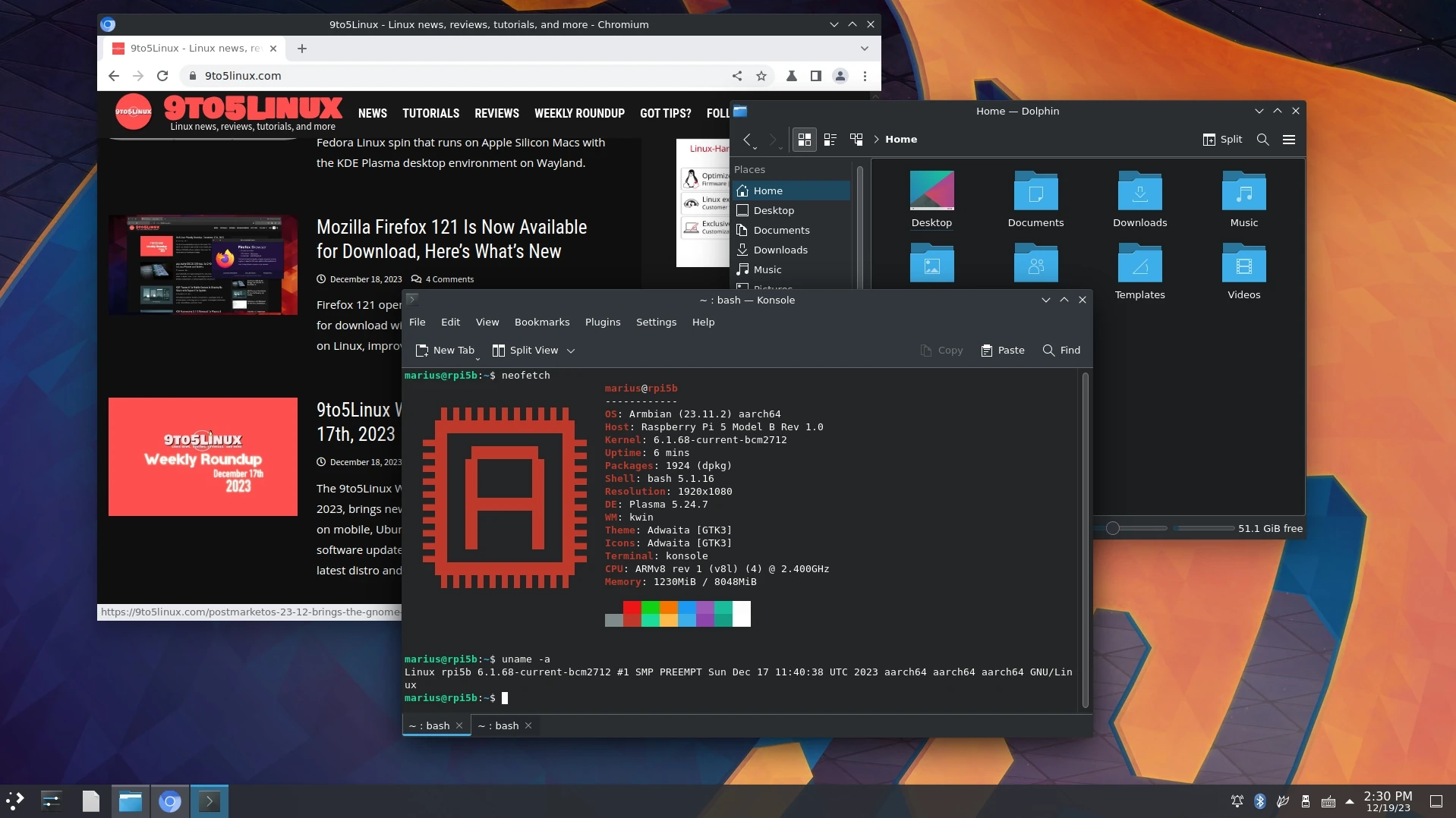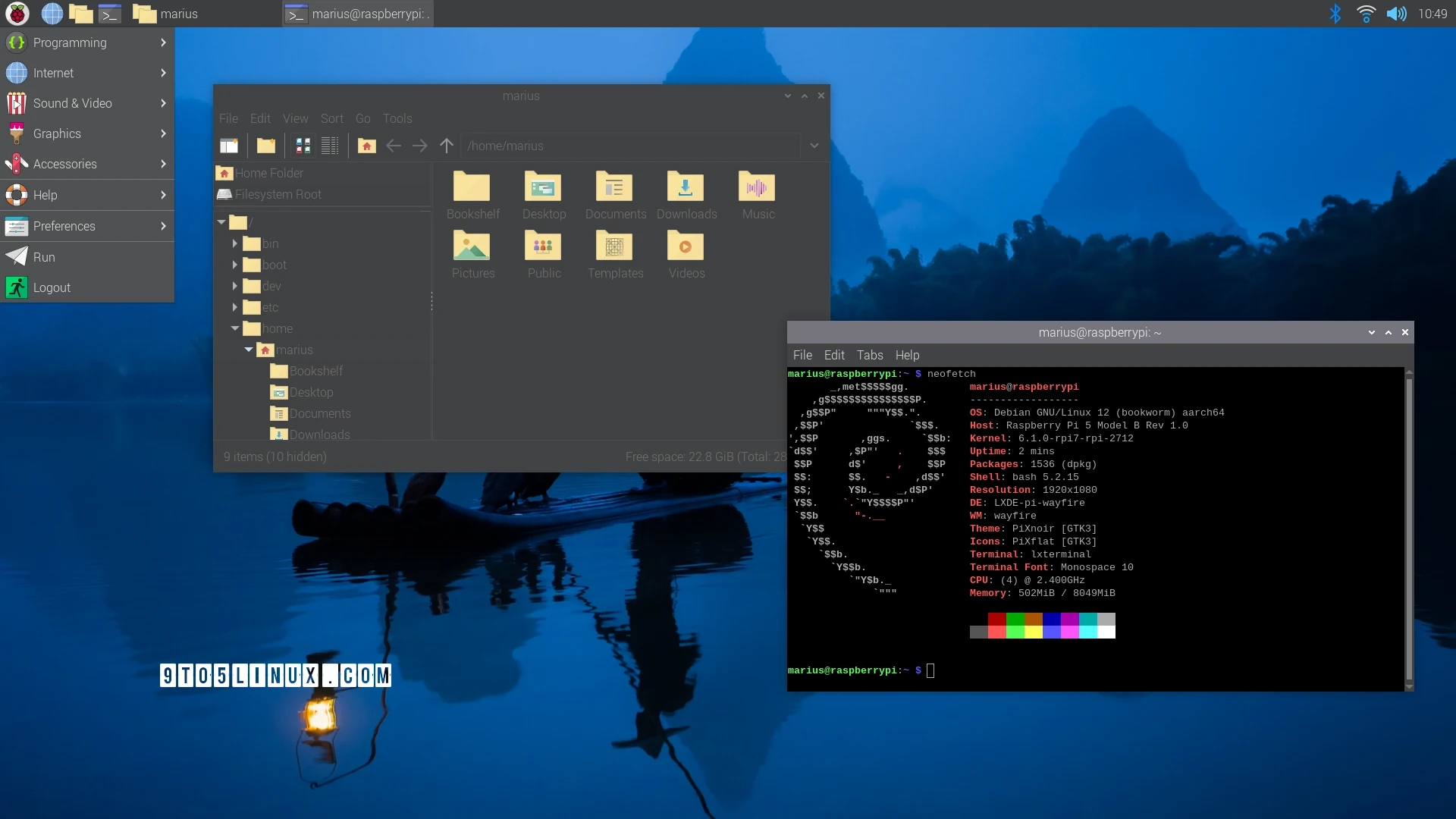Category: Raspberry Pi 5
-
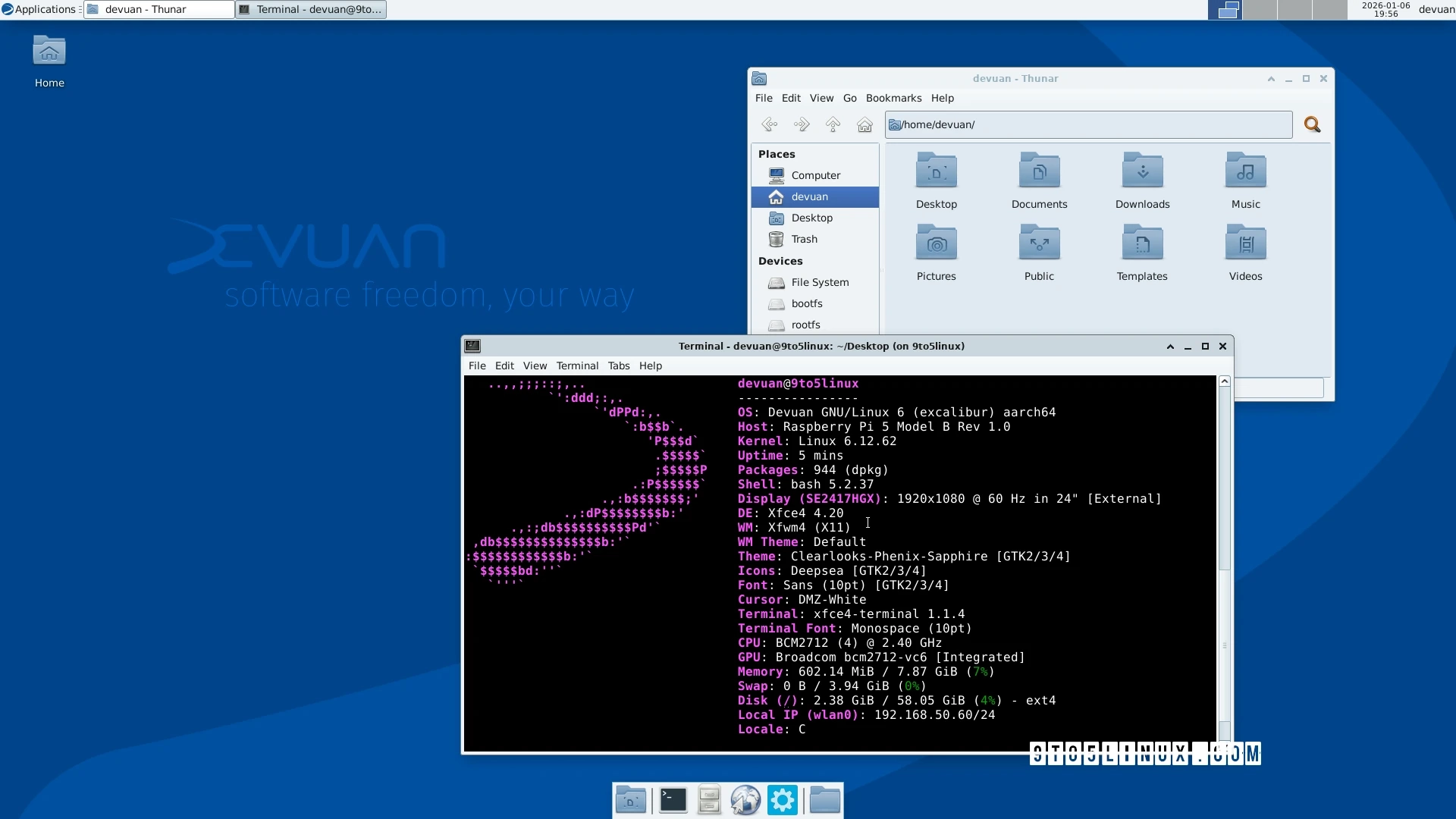
Exploring Devuan GNU+Linux 6 “Excalibur” on Raspberry Pi 5: A First Look
The Devuan GNU+Linux community has introduced Raspberry Pi images for its latest release, Devuan 6.1, also known as "Excalibur." I tested this distribution on my Raspberry Pi 5 to explore its capabilities. Released on January 1, 2026, Devuan 6.1 is an updated version of Devuan 6.0, which was based on the recent Debian 13 "Trixie"…
-

Introducing Raspberry Pi Compute Module 5: The Modular Upgrade to Raspberry Pi 5
The Raspberry Pi Foundation has officially launched the Raspberry Pi Compute Module 5, marking the latest addition to its Compute Module series. This modular version of the Raspberry Pi 5 is powered by a 2.4GHz Quad-Core 64-bit ARM Cortex-A76 processor, and is offered with a choice of 2GB, 4GB, or 8GB of LPDDR4X-4267 SDRAM, alongside…
-

Fwupd Linux Firmware Updater Introduces Unofficial Support for Raspberry Pi 5
“`html Richard Hughes released today fwupd 1.9.22 as a new stable version for this open-source firmware updating utility making updating firmware on Linux automatic, safe, and reliable, which adds support for the latest Raspberry Pi devices. The biggest new feature in the fwupd 1.9.22 release is support for updating the firmware on the Raspberry Pi…
-

Raspberry Pi 5 M.2 HAT+ Review: Seamless Performance Out of the Box
About six weeks ago, the Raspberry Pi Foundation announced the official M.2 HAT for the Raspberry Pi 5 allowing us to finally have an internal disk drive for bigger storage capacity and a faster computing experience. The official M.2 HAT is called M.2 HAT+ promising up to 500 MB/s data transfer to and from NVMe…
-

AlmaLinux OS Extends Support to the Newly Released Raspberry Pi 5
AlmaLinux developer Koichiro Iwao shared some exciting news today for those who want to run the free Red Hat Enterprise Linux alternative on a Raspberry Pi computer as the latest Raspberry Pi 5 model is officially supported. It has been a long-awaited development and challenging for the developers, but Raspberry Pi 5 support is now…
-

How Linux 6.6 LTS Powers Raspberry Pi OS and Enhances Raspberry Pi 5 Support
The Raspberry Pi Foundation introduced a new version of its Raspberry Pi OS, built for their single-board computers, featuring a new kernel from the Linux 6.6 long-term support series, revised components, and various enhancements. The upgraded Raspberry Pi OS still comes on the latest Debian GNU/Linux 12 “Bookworm” Operating system. It now runs on Linux…
-

Official Release of MX Linux Raspberry Pi Edition for Raspberry Pi 5 and 4 SBCs
The developers of the Debian-derived MX Linux distribution have launched a Raspberry Pi version, designed for those seeking to use the single-board computers. The MX Linux Raspberry Pi Edition was initially released in mid-November 2023 and has been trialed on Raspberry Pi 4, Raspberry Pi 400, and Raspberry Pi 5 single-board computers. It comes along…
-

Introducing Armbian Linux: Now Accessible on Raspberry Pi 5 Computers
The Armbian project declared recently that their Debian/Ubuntu-oriented ARM distribution is now compatible with Raspberry Pi 5 single-board computers and supports Cinnamon, GNOME, Xfce, KDE Plasma, and i3 environments. For followers of Raspberry Pi, this comes as a genuine Christmas present as they now have the chance to install a thoroughly optimized GNU/Linux distribution onto…
-

Introducing the New Dark GTK Theme and Enhanced Raspberry Pi 5 Support in Raspberry Pi OS
The Raspberry Pi Foundation has launched an updated version of their Raspberry Pi OS distribution for Raspberry Pi single-board computers, enhancing the support for the latest Raspberry Pi 5 model, introducing a new dark theme, upgrading various applications, and implementing new features. In the new Raspberry Pi OS release, version 2023-12-05, a new dark GTK…
-

Kali Linux 2023.4 Ethical Hacking Distro Introduces Support for Raspberry Pi 5
Today, Offensive Security unveiled Kali Linux 2023.4, marking the final yearly update for this well-known ethical hacking and penetration testing distribution, which originates from Debian GNU/Linux. Following over three months since Kali Linux 2023.3, Kali Linux 2023.4 emerges with support for the Raspberry Pi 5 single-board computer supplied through a separate image for those who…
